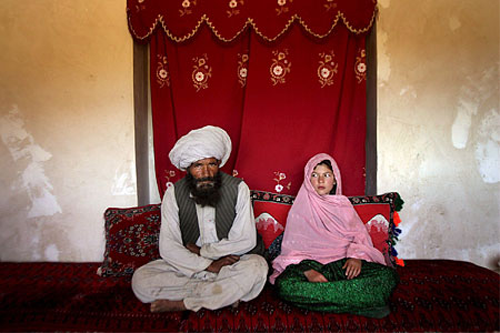A girl born in South Africa has a 50% chance of being raped* . Combine this with the number of South Africans living with HIV - currently more than 5 million - and the risk of HIV infection is extremely high.Across the world, the threat of violence prevents women from refusing sex or insisting on the use of condoms, even when they suspect their partners are HIV-positive. Many women also face violence and abandonment on disclosure of a HIV positive diagnosis.
The UK government has just launched a seven year strategy for tackling AIDS in developing countries. In that strategy, they acknowledged that widespread violence against women increases their risk of HIV infection, but they haven’t said what they’re going to do about it. Now it’s time to move them from acknowledgement to action, and you can help.
ActionAid wants to collect 2,876 shoes, one for every woman who contracts HIV around the world each day. These will be developed into a sculpture which we will present to the government on International Women’s Day in March, to highlight both the scale of the problem and the numbers of people who are concerned.
We urgently need your help to reach our target by International Women’s Day. Take part online and send it to all your friends and family.
Put your foot down on violence against women and help to end HIV and AIDS.
*[From ActionAid's website: A girl born in South Africa has a higher chance of being raped than of learning to read. With 5 million South Africans living with HIV the risk of HIV infection for women is extremely high.]
To put that infection rate in perspective the female population of Aberdeen is approximately 100,000, that's approximately how many women are infected with HIV every 35 days worldwide. A large proportion of the rate to female dis-empowerment. Whether it be through the prevalence of sexual violence or a lack of control over prophylactic measures, especially in particularly patriarchal societies in which men refuse to wear condoms and women feel unable to insist.
ActionAid's self-described purpose is an extremely positive one; long term development is just as important (if not more so) as short term alleviation of suffering when it comes to tackling the effects of poverty.
ActionAid doesn't just tackle the effects of poverty.We also change what keeps people poor.
ActionAid improves people’s lives every day. But we know that’s not enough. So we work relentlessly to change whatever is keeping them trapped in poverty.This means we have a better chance of ending poverty for good.
You can sign their petition and send a virtual shoe here.






